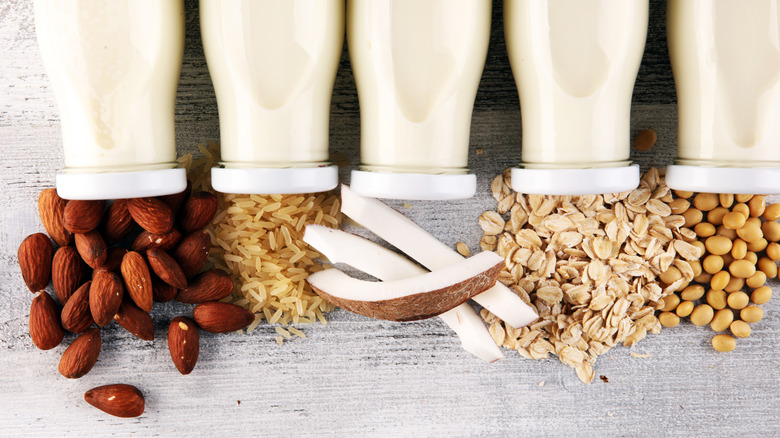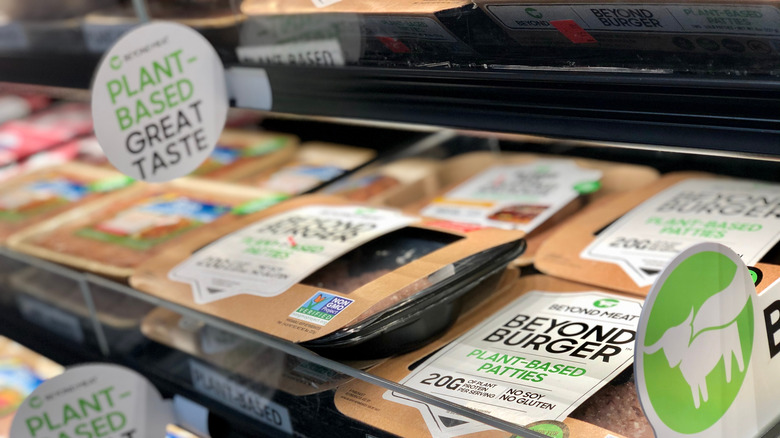Why Plant-Based Food Products Are Here To Stay
Fickle as they are, some trends have a habit of being hot one day and forgotten the next while others manage to stick around for the long run. Whether it's a particular style of jeans (a clothing staple that may be having an identity crisis at the moment) or a home decor theme (the Instagram-revived checkerboard pattern continues to abound), someone who's pro-trend might argue that mass crazes encourage people to move on from their current routines and try something new — even if everyone around them is also trying that new thing.
Per supply and demand, an increase in a certain product's desirability yields a higher rate of production. This applies to food, as well, be it a single ingredient (TikTok's @grilledcheesesocial told The Kitchn that sweet vinegar could be having a moment) or a whole class of them. Thanks to the rise of flexitarianism, the demand for plant-based products like milk, meat, and egg substitutes has never been higher. Here's why the herbivorous products at your local grocery are likely to hold down their shelf space for the foreseeable future.
Many consumers are all about sustainability
According to Supermarket News, a report from the Plant Based Foods Association (PBFA) revealed that plant-based products pulled in $7.4 billion in 2021, growing "three times faster than total food retail sales" in the U.S. that year. These numbers are especially impressive considering the swell of supply-chain issues and inflation brought on by the pandemic. "The sustained rise in the market share of plant-based foods is remarkable, and makes it clear that this shift is here to stay," said Julie Emmett, Senior Director of Retail Partnerships at PBFA. "By taking consumer concerns to heart, the industry is actively embracing its role as a key driver of change that moves us closer to a secure and sustainable food system," she added.
A star performer in the movement is plant-based milk, reports Supermarket News, with almond milk sales accounting for 59% of the total non-dairy category and oat milk comprising 17%. Plant-based meat is seeing similar success. Led by meat-free burgers like Impossible patties, meatless meat sales have grown 74% in the past three years. Other innovations are following suit — plant-based meatballs, chicken nuggets, tenders, cutlets, and deli slices were among the fastest-growing plant-based meat products in 2021, says Supermarket News. With environmentally-conscious Millennials and Zoomers comprising the core market, experts are convinced that the popularity of plant-based products will only increase over time.

